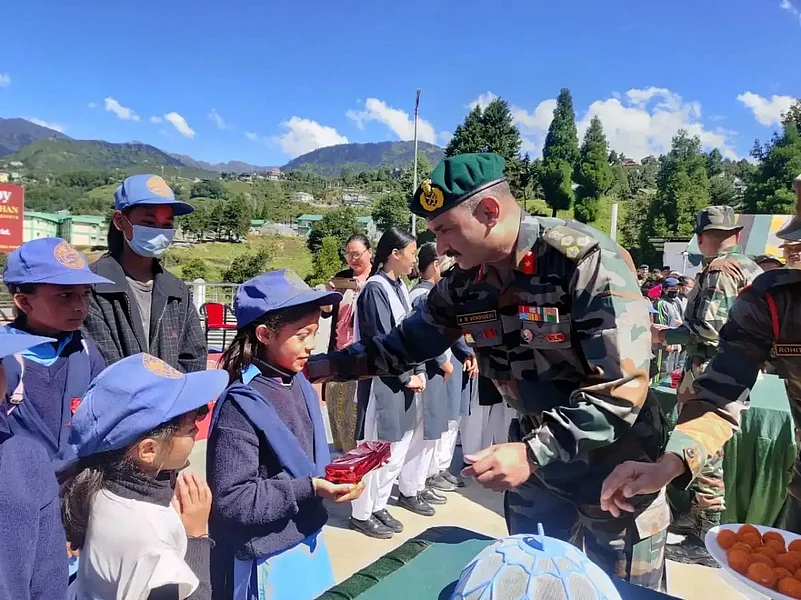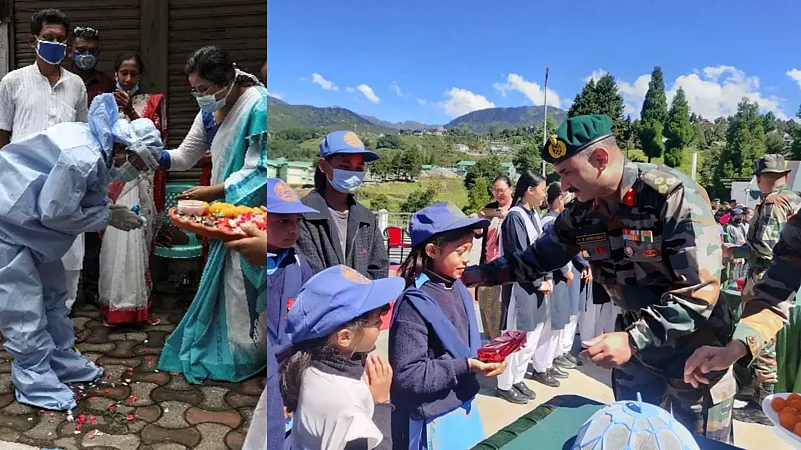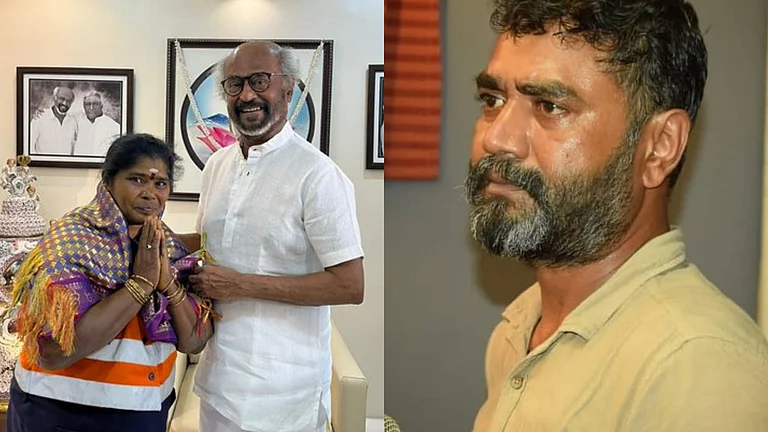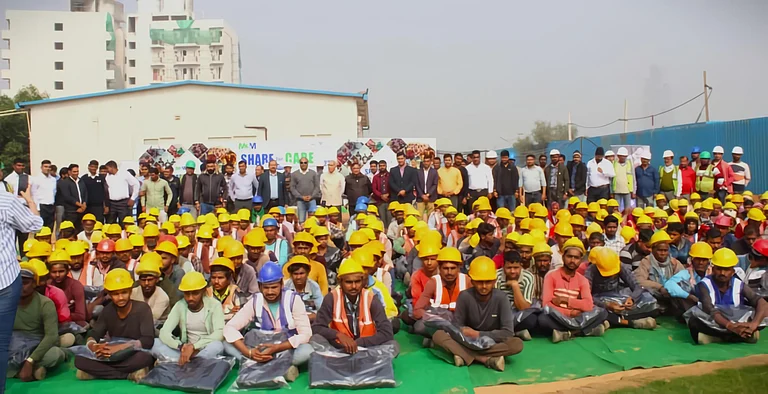Every year, during the festival of Raksha Bandhan, sisters tie rakhis on the wrists of their brothers as a promise of love and protection. But in recent years, a beautiful change has taken place in how the festival is celebrated. People across India are now tying rakhis not just to family members, but also to those who protect and serve the nation like soldiers, police personnel, and sanitation workers. This heartfelt gesture has come to be known as “Rakhi for the Nation.”
The idea behind this is simple yet powerful. While brothers promise to protect their sisters, there are many people in our society who protect us all, every day, without asking for anything in return. Soldiers guard our borders in harsh weather, police ensure law and order, and sanitation workers quietly clean our streets. Tying rakhis to them is a way of showing gratitude and respect.
Honouring the Real Protectors
In various parts of the country, schoolchildren, teachers, and common citizens visit army camps, police stations, and municipal offices to tie rakhis on the wrists of these everyday heroes. Many schools and NGOs organize special programs where young girls tie rakhis to soldiers posted in nearby cantonments. In return, the soldiers often respond with warm smiles, blessings, and promises to keep the country safe.
In Delhi, Mumbai, Lucknow, and many other cities, local residents walk into police stations with handmade rakhis and sweets. The scene is emotional — rakhis being tied by daughters, sisters, and even elderly women to officers who may not have families nearby. Many police officers remain on duty during festivals and don’t get to celebrate at home. This small gesture makes them feel appreciated and remembered.

Sanitation workers, too, are finally being recognized for their tireless efforts. Whether during festivals, the COVID-19 pandemic, or monsoon floods, these workers have been on the frontlines. In recent years, children have been seen tying rakhis to sweepers and garbage collectors in cities like Jaipur, Bhopal, and Ahmedabad. It is often the first time someone has thanked them for their work and it brings tears of joy.
A Festival of Unity
“Rakhi for the Nation” is more than just a celebration. It has become a symbol of unity and social respect. It breaks barriers between people of different backgrounds. When a young girl ties a rakhi on a soldier’s wrist, she is not just following a tradition as she is reminding us that every citizen is a part of one big Indian family. This is not the first time the festival has been used to unite people. To understand the historical roots of this idea, it's worth learning how Rabindranath Tagore used Raksha Bandhan in 1905 to inspire national unity.
Many people have also started tying rakhis to traffic police, fire brigade teams, home guards, doctors, nurses, and even delivery workers. These are all the people who keep life running, often unnoticed. During the pandemic, such gestures became more common, and they continue to grow today.
This thoughtful practice also teaches children about empathy and gratitude. Schools that organize rakhi celebrations with civic workers or police officials say that students begin to understand how many people work to keep them safe and healthy every day. It builds respect for public service and encourages a sense of community responsibility.
Rakhi at Borders

In some emotional stories, citizens have even sent rakhis to soldiers posted at Siachen Glacier, Ladakh, and borders in Arunachal Pradesh and Rajasthan. Women’s groups from across India including from far-off villages post handmade rakhis with messages of thanks and prayers. Some units of the Indian Army display these rakhis on notice boards in their camps, proudly showing that the country remembers them.
One such soldier from the Border Security Force, requesting anonymity said, “When we receive a rakhi from someone we have never met, it touches our hearts. It makes us feel that our efforts are not in vain.”
Taking the Message Forward
The government and many civil society organizations have also encouraged this idea. Campaigns such as “Thank You Rakhi,” “Rakhi for Soldiers,” and “Raksha Sutra for Protectors” have gained popularity on social media. In some states, local police departments themselves invite citizens to participate and visit their stations during Raksha Bandhan.
The spirit of “Rakhi for the Nation” has also been linked to the larger idea of nation-building and citizen awareness. When people step out to tie a rakhi to a police officer or a worker in uniform, they are building trust and mutual respect. It shows that festivals are not just about rituals, but also about relationships, emotions, and shared values.
A Festival Reimagined
Traditions evolve with time. Today, Raksha Bandhan is no longer limited to a bond between brother and sister. It is becoming a festival of universal protection, care, and gratitude. In this new version, everyone who serves and safeguards society becomes a “brother” or a “protector.”
As we celebrate this Raksha Bandhan, let us remember those who are often forgotten during festivals. Let us tie a rakhi not just with thread, but with respect and thanks. Whether it is a soldier standing guard at the border, a policewoman on night duty, or a sanitation worker cleaning our lanes, these are the people who protect the spirit of our nation every single day.
Let’s celebrate them. Let’s include them in our festivals. Because in this vast and diverse land, every hand that works for the safety and dignity of others deserves a rakhi.



























